
Woman Throws A 40-Minute Fit And Colleague Listens To It All, Gets Her Fired
Interview With ExpertWorking in customer service or a call center is no walk in the park. Especially when you’re on the receiving end of customer complaints. If you’re lucky, you’ll deal with a calm and polite caller and you’ll be able to assist, say goodbye, and move on. But that’s not always the case. A recent survey revealed that 60% of customers have hung up on a customer service/support agent, and 34% of customers admit to yelling at a customer service agent.
One person shared how they had to grin and bear it while an angry, entitled Karen went off on them for forty minutes straight. But there was an unexpected plot twist after the call—the rude caller turned out to be a colleague attempting to carry out a serious data breach. And they weren’t quite prepared for the repercussions of their rant. Bored Panda reached out to customer service expert Shep Hyken for his advice on dealing with angry Karens. Hyken is an award-winning keynote speaker and best-selling author.
Dealing with an entitled customer is bad enough, but when they decide to call a minute before your shift ends—that’s next level
Image credits: delightfully_chaotic_me/Envato (not the actual photo)
One customer service agent bit their tongue while an angry woman yelled at them, making impossible demands left, right, and center
Image credits: stockbusters/Envato (not the actual photo)
Image credits: Atvali
“There are several ways to handle an angry customer,” an expert explains
Image credits: Getty Images/ Unsplash (not the actual photo)
Shep Hyken is an expert when it comes to customer service. He’s a keynote speaker and has written several books on the topic. Hyken says it’s important to remember “you’re not trying to win an argument. You’re trying to win the customer.” He told Bored Panda that goal is to move the customer from angry to happy. While it’s easy to lose your cool or zone out while being screamed at, Hyken advises you to pay close attention to what the person is saying.
“Welcome the customer into the conversation. Once you recognize they are upset – and even yelling – focus on getting to neutral ground. Allow the customer to vent. Then acknowledge the complaint and apologize that it happened,” he said during our interview. Hyken said that as an agent, one of the most important things is to let the customer know you are the right person to take care of the problem.
“Let the customer know you’re on their team. Then, ask them to start over, from the beginning, so you have a better understanding of the problem. You will often find the conversation moves from angry to normal. Then do what you do best, and resolve the problem,” advised Hyken.
He also suggests dealing with the customer’s anger quickly, while staying calm. Even if customers yell, don’t yell back. Remember, they aren’t mad at you. They’re mad at the situation. Hyken adds that you should listen and ask clarifying questions but never interrupt. It’s also useful to take notes so that if the customer ends up talking for a long time, you can remember all they’ve said. As tough as it might be, the expert says you should always try to have a positive attitude.
21% of customers admit to cursing at customer service agents
Image credits: Blake Cheek/Unsplash (not the actual photo)
Hyken’s latest research found that 34% of customers admitted to yelling at a service agent, while 21% have taken it to the next level and cursed. “You catch more flies with honey than you do with vinegar,” is Hyken’s message to angry customers.
“There’s an old joke that goes something like this: A passenger goes into the baggage claim office and screams at the airline employee, ‘You lost my luggage!’ The rant continues and eventually the employee says, ‘I realize you are upset about your lost luggage. At this point, there are only two people who care about that lost luggage, and you’re starting to make one of them upset.’ For the customers out there who think yelling will help, it won’t!” said Hyken.
As a customer, you need to remember that you want someone to help you. And Hyken says this doesn’t happen when you force someone to play defense because of how you treat them. “When I’m upset, I always start by asking the agent’s name and letting them know how happy I am that I’m now talking to someone who might actually be able to help me,” he told Bored Panda. “This sets the tone that I’m here to get this taken care of, and I’ve empowered the agent to do so.”
He adds that you can always ask to speak to a supervisor. Or, you can hang up and hope that a different agent answers your call. Contrary to popular belief, Hyken says the customer is not always right. “No! But they are always the customer,” he told us. “So, if they are wrong, let them be wrong with dignity and respect. Back to something I mentioned earlier: You’re not trying to win an argument. You’re trying to win a customer.”
“They need to be warned”: expert says there’s no place for abusive behavior
Image credits: Anna Shvets/Pexels (not the actual photo)
While Hyken is all for solving an angry customer‘s problems, he believes that customer service agents should not tolerate abusive behavior. “If a customer is abusive or offensive, they need to be warned. How you go about doing that is crucial,” he told Bored Panda. “Let them know that you can’t do your job, which is to take care of them, if they aren’t willing to put the anger aside for the call.”
Hyken says you should give the person a chance to treat the conversation with the respect it deserves. “If they are not willing to do this, let them know you’ll be ending the call. But they can always call back when they are in a better frame of mind,” said the expert.
He noted that it’s important for leaders and managers of contact centers to have their agent’s back. “They need to know you’ll support them in a decision to properly terminate the call. Train the agents on when it’s the right time to do so, and how to properly do it.”
Hyken says while agents should always aim to be polite to our customers, sometimes it’s okay to calmly transfer them to a manager. Or, if empowered to do so, politely say goodbye and hang up. Or, in the case of the person dealing with their criminal colleague, let your manager listen in while the customer incriminates themselves even more.
“Don’t commit a second crime while you are committing the first one”: Netizens took to the comments to share their thoughts
Poll Question
Thanks! Check out the results:
For doing your job above and beyond, you got overtime pay and a box of chocolates given to you by what sounds like an excellent supervisor. For breaching privacy rules (personal account and company records) Jane the b|tch got fired. I'd call that a karmatically balanced transaction.
I do tech support, and luckily 99.9% of the customers are peers and we work together to fix issues. Rarely do we have angry customers, and they normally are easy to calm or calm themselves if they are frustrated. There's no reason on earth to shout at someone for this kind of stuff, nevermind 30-45 minutes.
Someone in one of our offices did this last week, my colleague was dealing with them and then it became apparent that she was not the person she was claiming to be. It got escalated to the area director. We also get lots of requests for access to other people's mailboxes, without any reason specified. We always say no. The mailbox owner has to consent of their own accord and you asking them to do so is coercion and we will deny access
For doing your job above and beyond, you got overtime pay and a box of chocolates given to you by what sounds like an excellent supervisor. For breaching privacy rules (personal account and company records) Jane the b|tch got fired. I'd call that a karmatically balanced transaction.
I do tech support, and luckily 99.9% of the customers are peers and we work together to fix issues. Rarely do we have angry customers, and they normally are easy to calm or calm themselves if they are frustrated. There's no reason on earth to shout at someone for this kind of stuff, nevermind 30-45 minutes.
Someone in one of our offices did this last week, my colleague was dealing with them and then it became apparent that she was not the person she was claiming to be. It got escalated to the area director. We also get lots of requests for access to other people's mailboxes, without any reason specified. We always say no. The mailbox owner has to consent of their own accord and you asking them to do so is coercion and we will deny access

 Dark Mode
Dark Mode 

 No fees, cancel anytime
No fees, cancel anytime 



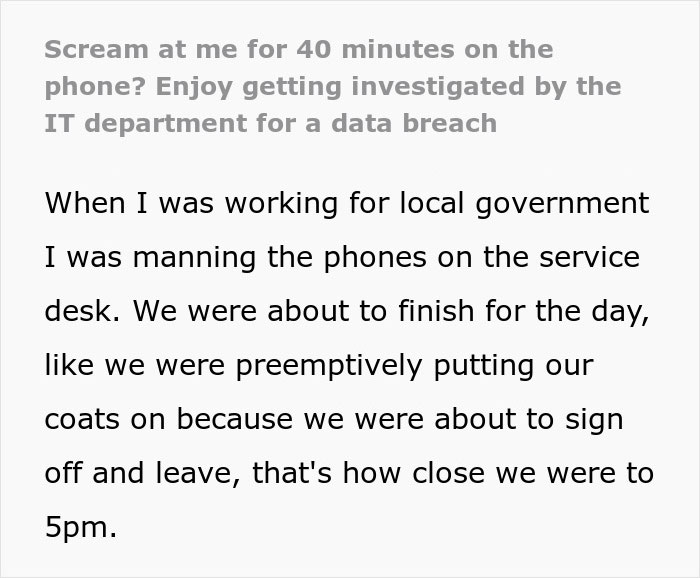

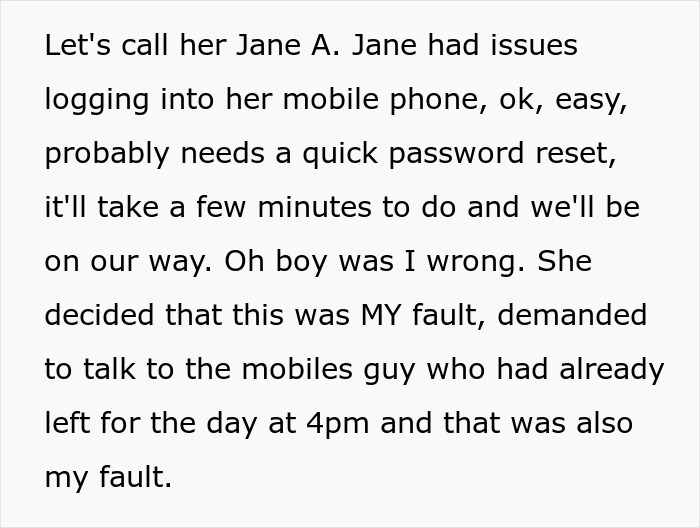
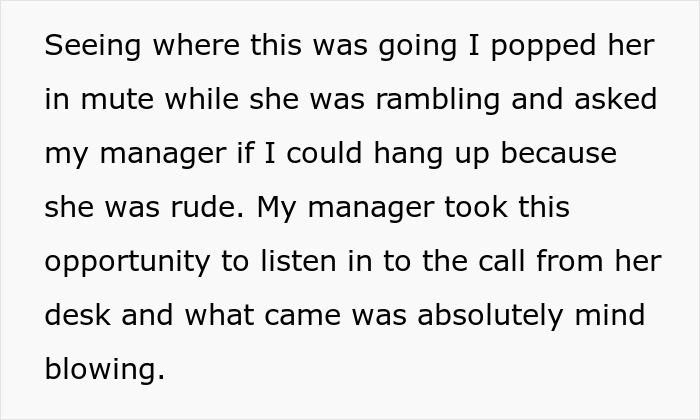

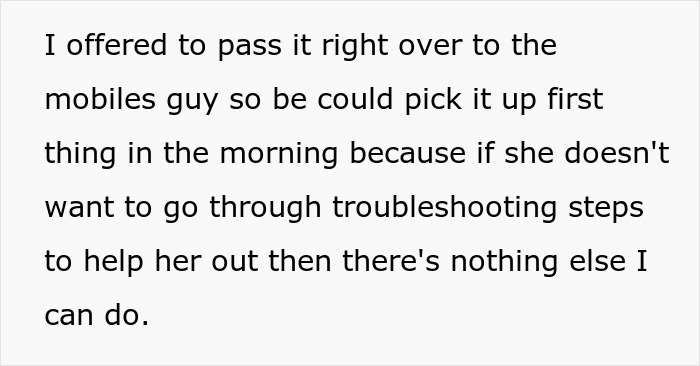
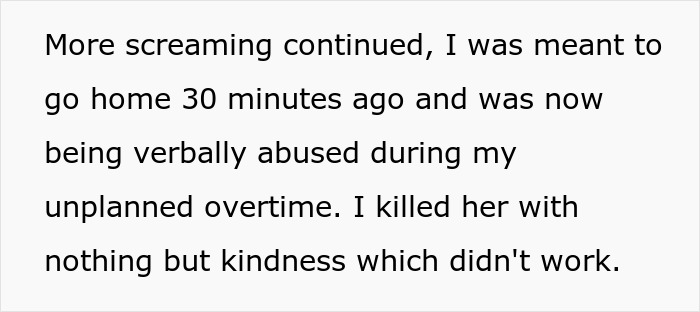


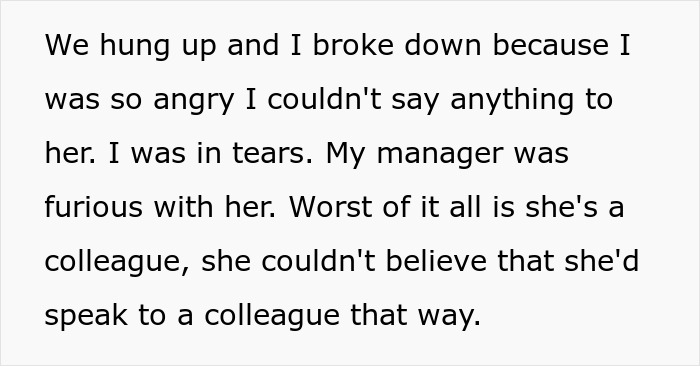

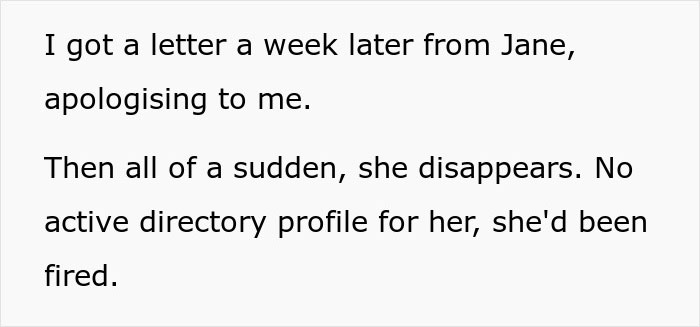
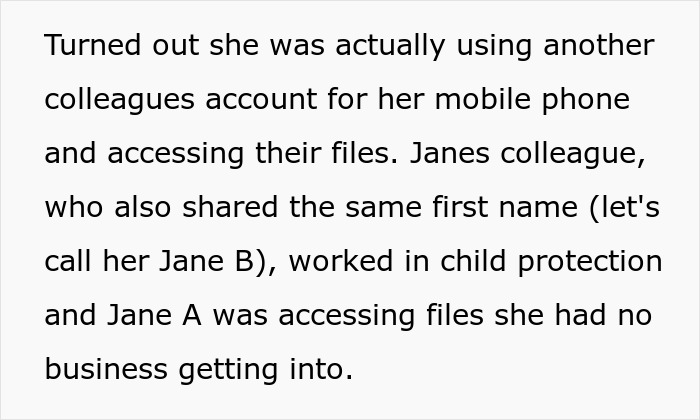

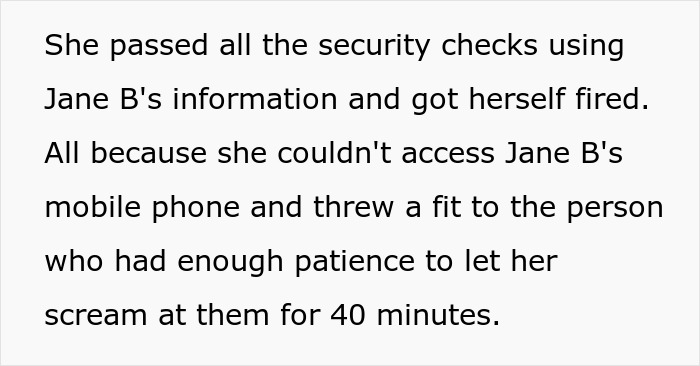
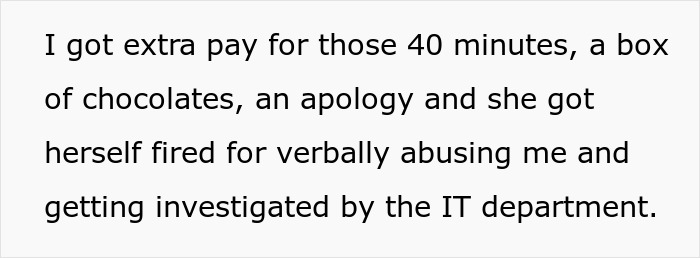




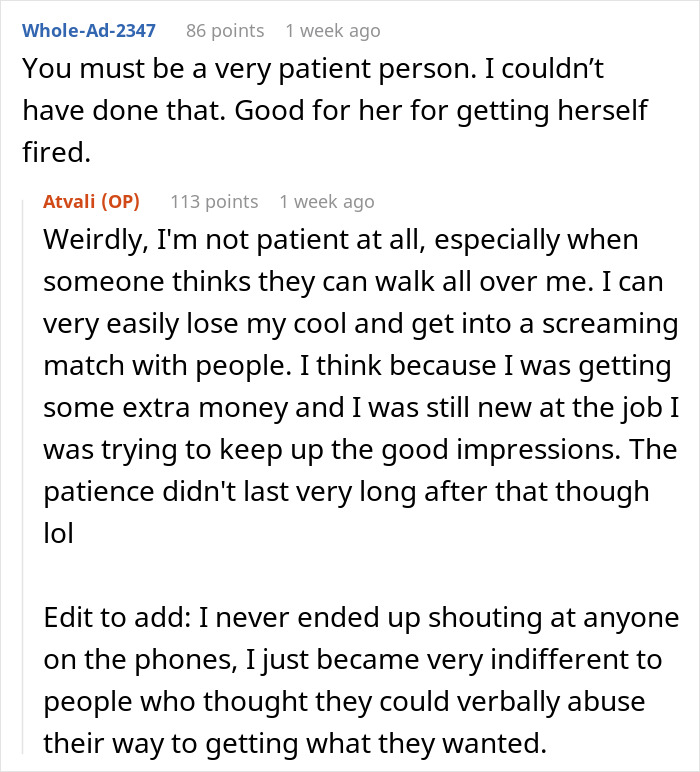

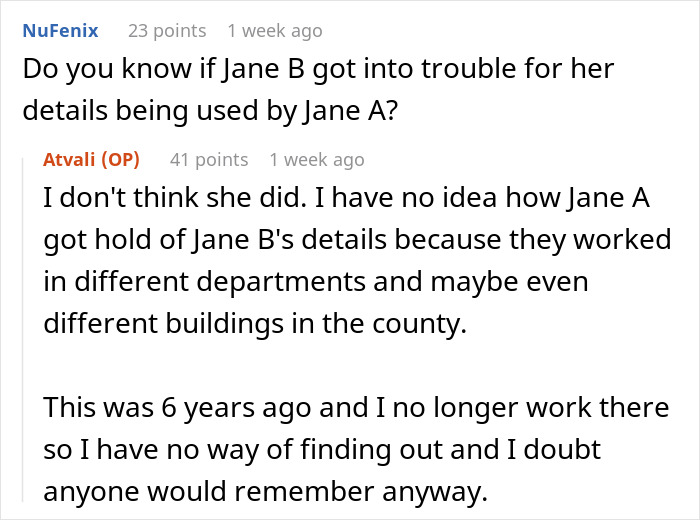
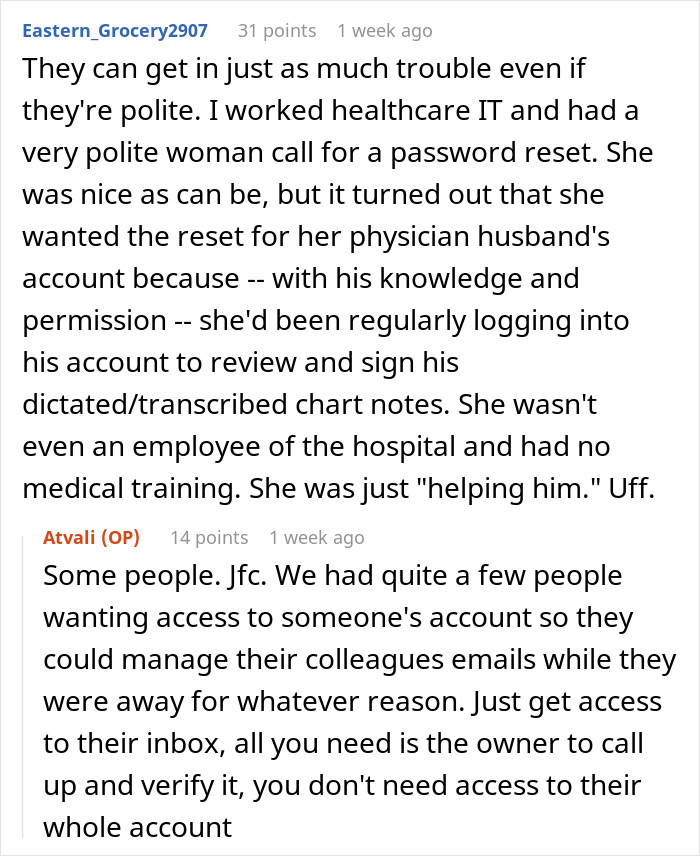
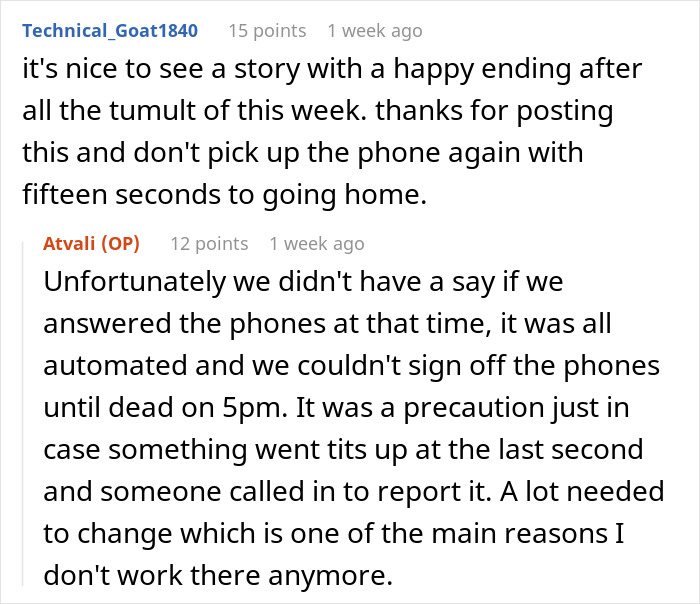
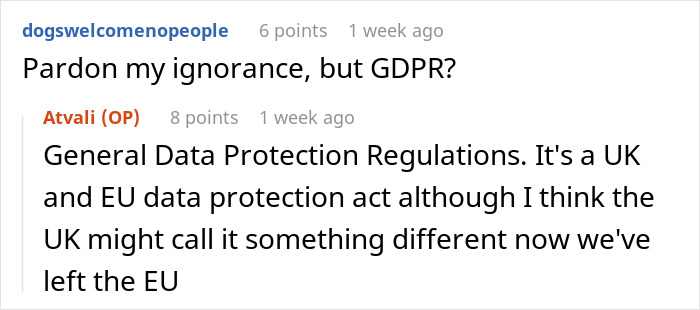
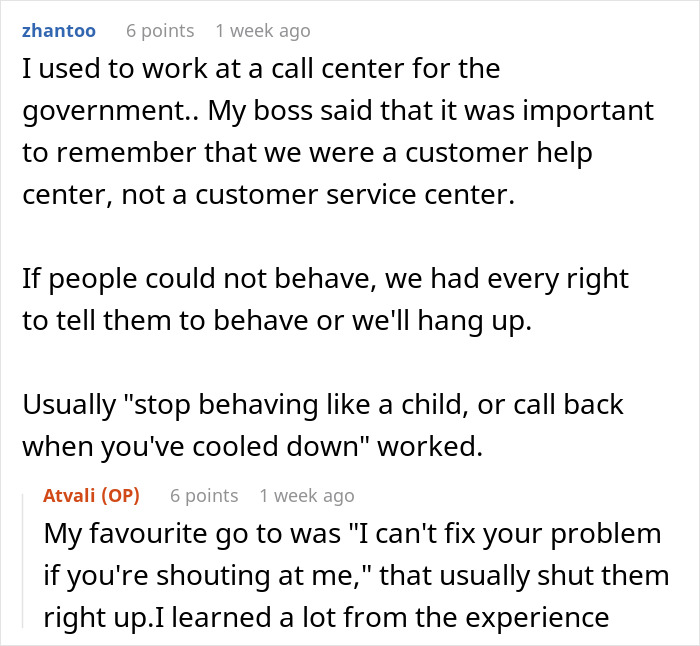
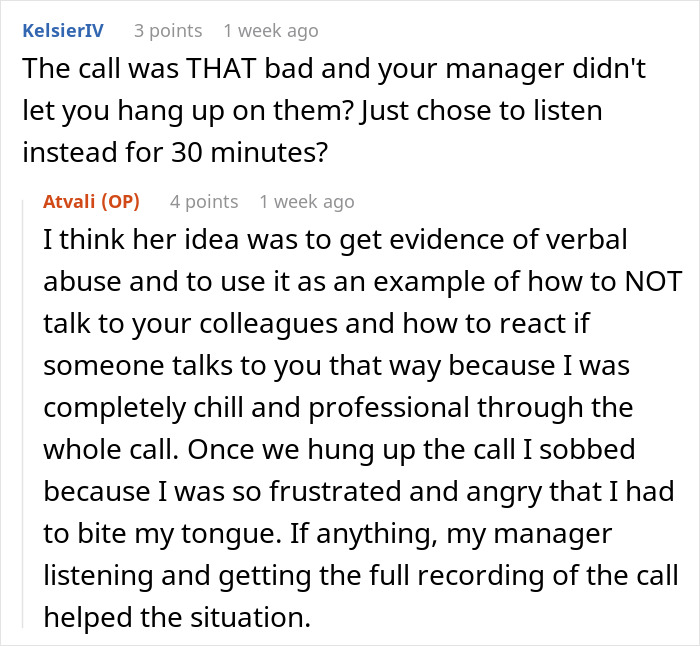
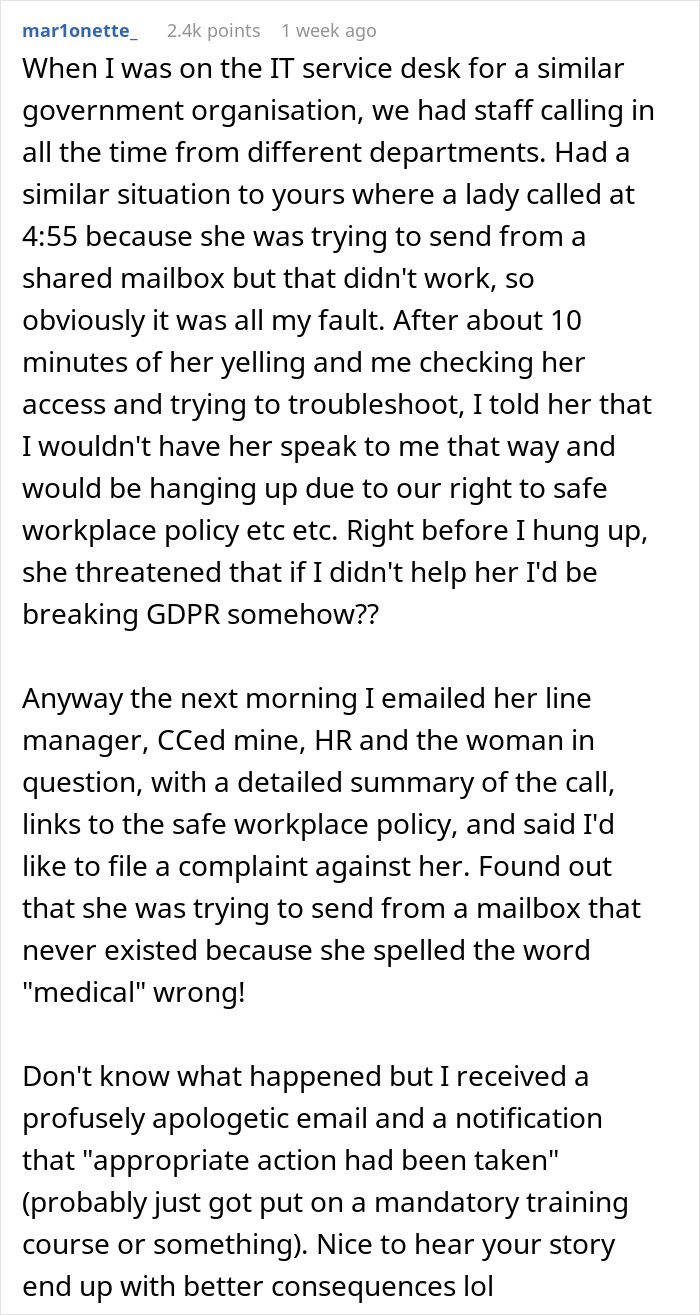


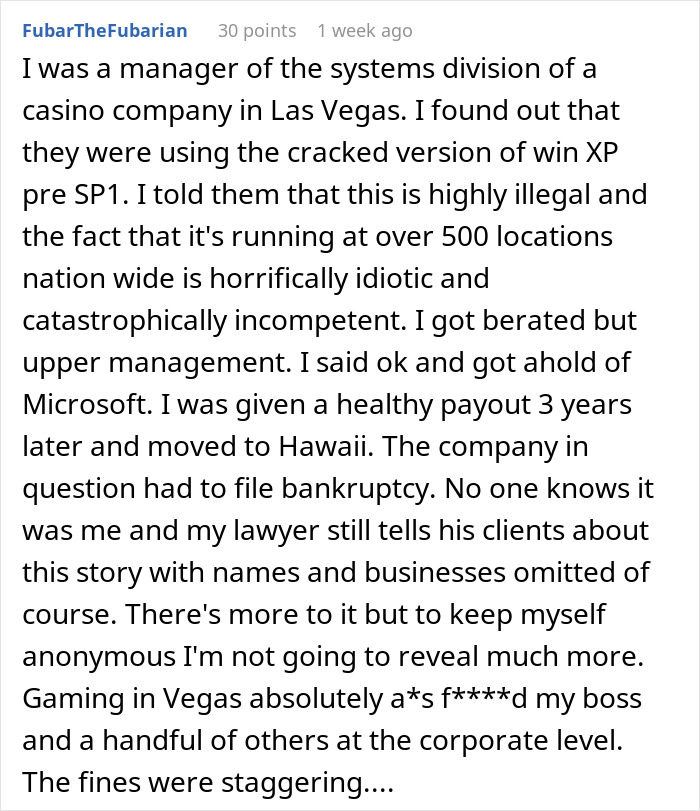

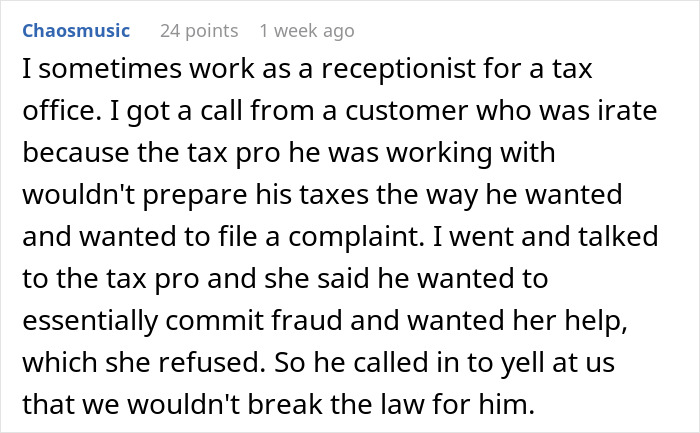

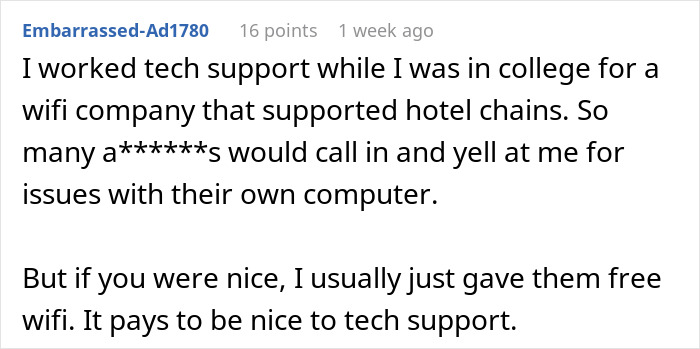
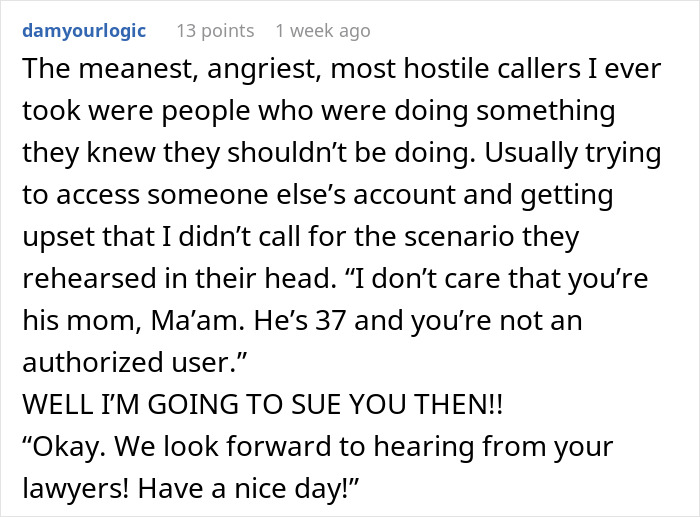
































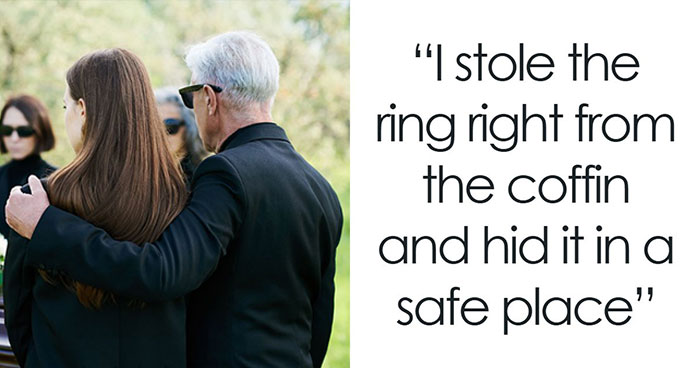











37
18